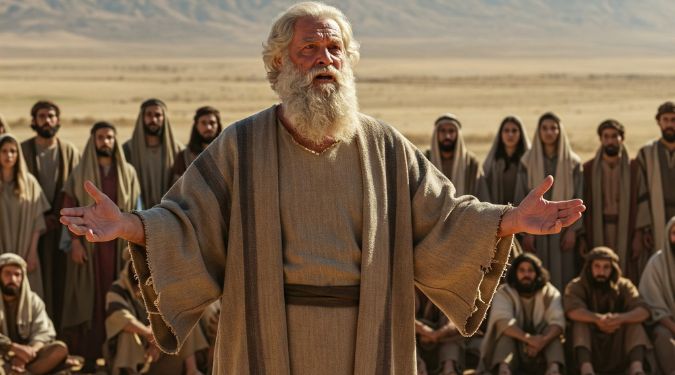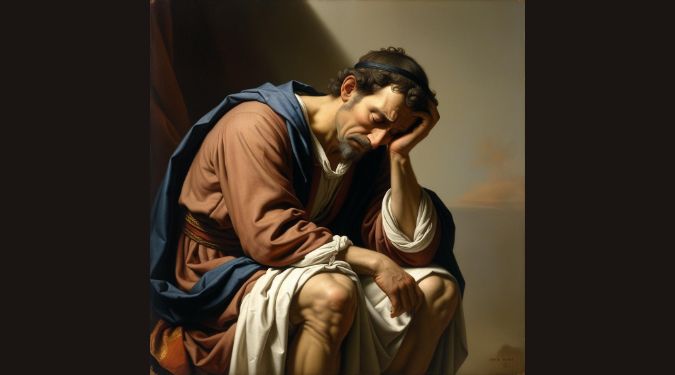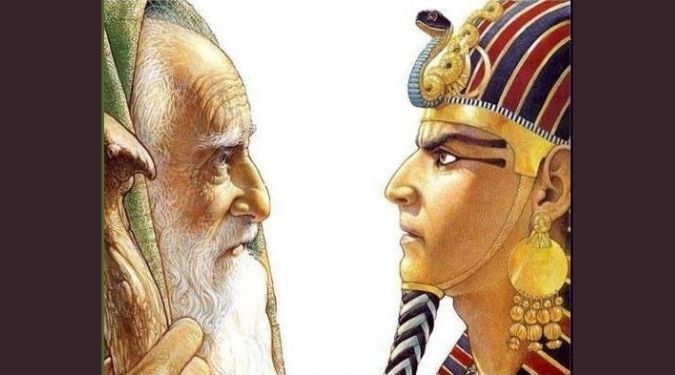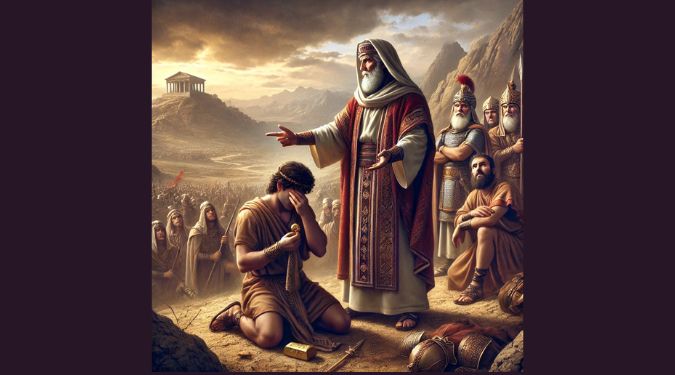Therefore I also gave them statutes that were not good, and judgments, in which they shall not live. And I polluted them in their own gifts, when they offered all that opened the womb, for their offences: and they shall know that I am the Lord. Ezekiel 20:25-26 DRA
These verses, in which the prophet Ezekiel seems to be asserting that God gave Israel laws “that were not good”, have been the source of much controversy. How could, or in what manner, did God give Israel such laws? Are not all of His laws good?
Some Explanations
These verses have generated quite a bit of controversy over the ages and scholars and commentators have used quite a bit of ink in attempting to explain them. One such scholar is Corrine (Patton) Carvalho who wrote in 1996:
This pericope presumes that at some point in Israel’s history, child sacrifice was a prescription imbedded in a legal collection ascribed to Yahweh.’ While this legal tradition can be found in this form only in the Covenant Code (Exod. 22.28-29),the text of Ezekiel presents the law as part of Israelite tradition from its legal inception. Additionally, the rejection of intergenerational punishment in Ezekiel 18, with the subsequent emphasis on the sin of the present generation, implies child sacrifice was an effective law up until the time of the exile. Ezek. 20.25-26 plainly states that the problem with the law of child sacrifice was not that it was misinterpreted-that is, that it was not read in the context of substitution or redemption of the sacrificial victim-or that it was a non-Yahwistic ritual. Instead, while chs. 16 and 23 connect Israelite observance of child sacrifice with the worship of foreign gods, ch. 20 makes perfectly clear that the people had correctly understood the law of child sacrifice as something prescribed by Yahweh. The law itself was evil, given by Yahweh as punishment for their sinfulness in the wilderness, in order to guarantee their ultimate destruction, while preserving Yahweh’s righteousness in the face of this disaster. (Patton 78-79)
Later in her career, in the New Collegeville Bible Commentary’s section on Ezekiel, Carvalho expressed the same idea, but more subtly.
the chapter also stresses God’s adherence to judicial procedure. God cannot destroy them until their sins have become great enough to justify their annihilation. In order to speed this process along, God gives them “statutes that were not good” (20:25-26) so that, when they obey them, they will further defile themselves, justifying God’s punishment. This shocking statement suggests that God is unfair and manipulative. (Carvalho 2037)
According to Carvalho, God originally commanded Israel to sacrifice their firstborn sons to Him in order to justify their annihilation, which is quite a cockamamie idea to appear in a Catholic commentary!
It’s not about sacrificing children
God gives direct commands against child sacrifice in the Book of Deuteronomy. In Deuteronomy 12:31 we read, “You shall not worship the Lord your God in that way, for every abominable thing that the Lord hates they have done for their gods, for they even burn their sons and their daughters in the fire to their gods”. Additionally, Deuteronomy 18:10 prohibits making a son or daughter pass through fire.
Furthermore, if Ezekiel was asserting in verse 26 that God commanded the sacrifice of firstborn children, then why did he contradict himself?
“And you took your sons and your daughters whom you had borne to me, and these you sacrificed to them to be eaten. Were your whoring so small a matter, that you slaughtered my children and delivered them up as an offering by fire to them?” Ezekiel 16:20-21
“When you offer your gifts and pass your sons through the fire, you defile yourselves with all your idols to this day. And shall I be inquired of by you, O house of Israel? As I live, declares the Lord God, I will not be inquired of by you.” Ezekiel 20:31
Morever, if God actually commanded Israel to sacrifice their firstborn children, then nobody told the prophet Jeremiah!
“And they have built the high places of Topheth, which is in the Valley of the Son of Hinnom, to burn their sons and their daughters in the fire, which I did not command, nor did it come into my mind.” Jeremiah 7:31 ESV
“Because the people have forsaken me and have profaned this place by making offerings in it to other gods whom neither they nor their fathers nor the kings of Judah have known; and because they have filled this place with the blood of innocents, and have built the high places of Baal to burn their sons in the fire as burnt offerings to Baal, which I did not command or decree, nor did it come into my mind” Jeremiah 19:4-5 ESV
However, God certainly commanded that firstborn sons were His:
“You shall not revile God, nor curse a ruler of your people. “You shall not delay to offer from the fullness of your harvest and from the outflow of your presses. The firstborn of your sons you shall give to me. Exodus 22:28-29 ESV
“Consecrate to me all the firstborn. Whatever is the first to open the womb among the people of Israel, both of man and of beast, is mine.” Exodus 13:2 ESV
But it can be argued that the first-born sons were dedicated to sacred ministry, and after Israel worshipped the golden calf, this role was given to the tribe of Levi (Hahn and Mitch 142). See these verses:
“Behold, I have taken the Levites from among the people of Israel instead of every firstborn who opens the womb among the people of Israel. The Levites shall be mine,” Numbers 3:12
“Thus you shall separate the Levites from among the people of Israel, and the Levites shall be mine. And after that the Levites shall go in to serve at the tent of meeting, when you have cleansed them and offered them as a wave offering. For they are wholly given to me from among the people of Israel. Instead of all who open the womb, the firstborn of all the people of Israel, I have taken them for myself. For all the firstborn among the people of Israel are mine, both of man and of beast. On the day that I struck down all the firstborn in the land of Egypt I consecrated them for myself, and I have taken the Levites instead of all the firstborn among the people of Israel. Numbers 8:14-18
See Numbers 3:40-51 also.
A better explanation
The New Jerome Biblical Commentary offers a better explanation of these difficult verses:
Ezekiel’s meaning is best understood as that God abandoned them to their own worst evil inclinations. All things are under God’s control in Hebr thinking–even evil is for some purpose. The next verse [26] explains that God wished to make them aware of the horror of their crimes and return to acknowledging him. (Boadt, C.S.P. 319)
A view similar to this has been expressed earlier by orthodox Catholic commentators:
‘laws that were not good’ are possibly laws not good for them because by their fault they failed to observe them but more probably Canaanite observances which Yahweh gave them, let them take voluntarily. Yahweh’s gift of Canaan exposed them to the seductions of Canaanite worship…It would be contrary to the Holiness of Yahweh to impose laws not objectively good…God’s purpose was to terrify them by the enormity of their crime. (Orchard M.A. and Sutcliffe S.J. 611)
In this view, God “gave” them the Canaanite observances by exposing them to Canaanite worship, with the intent of frightening them with the Canaanite abominations, when He gave Israel Canaan as the Promised Land.
The problem with this explanation is that verse 25 is phrased in the active voice, “I gave them…” and interpreting this as a result of God’s passive will seems to be quite a leap.
A third explanation
There might be, however, an even better explanation, one offered by Scott Hahn and John Bergsma in their article, “What Laws Were ‘Not Good’? A Canonical Approach to the Theological Problem of Ezekiel 20:25–26.” in the Journal of Biblical Literature. Let’s dive into it.
Ezekiel’s priestly perspective
Ezekiel demonstrates a decidedly priestly perspective in his writing and Hahn and Bergsma show that he relies heavily upon one of the hypothesized literary sources that scholars say constitute the Pentateuch: the Priestly Source, often referred to as “P”. The Priestly Source is named for its focus on matters of concern to priests, such as a strong interest in rituals and sacrifices, the temple and tabernacle, and Sabbath observance.
We know that Ezekiel came from a family of priests (Ezekiel 1:3). Ezekiel describes his vision of a new, restored temple in a new holy city in great detail in chapters 40-44. He refers to altars (“מִזְבֵּחַ”) at least eighteen times in his writing and he uses the verb קֹדֶשׁ, “To consecrate, sanctify, set apart, make holy”, or its noun cognate at least 65 times.
The Three Panels of Ezekiel 20
Hahn and Bergsma adopt Daniel Block’s structural analysis of Ezekiel 20:5–26, which breaks those verses up into three “panels”. Each of these panels contain five recurring elements: a divine oath, the statement “I am the LORD,” a revolt by Israel, a threat of divine wrath, and divine restraint. These three panels are said to correspond to three stages of Israel’s exodus and wilderness wanderings. (Hahn and Bergsma 203)
The First Panel
The first panel, verses 5–9, relate the story of Israel being brought out of Egypt by God. the second panel, verses 10–17 relate God’s giving of the law to Israel on Mount Sinai after they worshipped the golden calf. The third panel, verses 18–26, briefly relate the giving of the law the second time on the Plain of Moab to the second generation of Israelites after they worshipped the Moabite gods (Numbers 25).
The Second Panel and the Holiness Code
So I led them out of the land of Egypt and brought them into the wilderness. I gave them my statutes and showed them my ordinances, by whose observance everyone shall live. Ezekiel 20:10-11
The second panel briefly relates God giving the Law to the Israelites at Mount Sinai and this law is related in the Book of Leviticus, which is a series of divine monologues given to Israel there (Bergsma and Pitre 205). Chapters 17-25 of Leviticus have been dubbed by scholars as the “Holiness Code” (Bergsma and Pitre 216) and deal with the distinction between holy and profane (or “common”) (Bergsma and Pitre 207). Some scholars assign chapters 16-26 to the Holiness Code (Odafe 92).
The Third Panel and the Deuteronomic Code
It’s this third panel which is key to Hahn’s and Bergsma’s explanation of “statutes that were not good”. We know that it refers to the second giving of the Law near Moab because of the first part of verse 18: “I said to their children in the wilderness…”. This occurred some 38 years after God made a covenant with Moses on Mt. Sinai. The second generation committed apostasy, worshipping Baal at Beth-peor (Num 25:1-8). The central chapters of the Book of Deuteronomy, chapters 12 to 26 are called “the Deuteronomic Code” and reflect the covenant made by God with these second generation of Israelites. (Bergsma and Pitre 262)
These are the words of the covenant which the Lord commanded Moses to make with the children of Israel in the land of Moab: beside that covenant which he made with them in Horeb. Deuteronomy 29:1 DRA
The Deuteronomic Code is a revision of the Holiness Code previously given at Mt. Sinai. Some of the laws were relaxed while others were made harsher and included extra capital crimes (punished with the death penalty) and promises of doom. (Bergsma and Pitre 265)
The Law that was not good
According to Hahn and Bergsma, Ezekiel, writing from a Priestly perspective, considered several specific laws within the Deuteronomic Code to be “not good”. These laws were seen as degrading the higher standard of holiness maintained in the Priestly tradition and specified by the Holiness Code. The specific Deuteronomic laws mentioned by them included laws concerning warfare, divorce, the sabbatical year, the slaughter of animals, and laws concerning “firstlings”, first-born creatures. Here are three examples:
- Divorce: Deuteronomy implicitly permits divorce (Deuteronomy 24:1-4), whereas this topic is never mentioned in the Priestly texts.
- Slaughter of animals: The Deuteronomic Code allowed the profane slaughter of clean animals outside of the sanctuary (Deuteronomy 12:15-25). In contrast, Priestly law (Leviticus 17:1-9) requires all slaughter of clean sacrificial animals to occur at the sanctuary with the blood being dashed against the altar. The Deuteronomic Code allows the blood of game animals to be poured on the ground like water (Deuteronomy 12:16). Hahn and Bergsma argue that from a Priestly viewpoint, Deuteronomy’s treatment of the blood of clean sacrificial animals as less sacred than the blood of game animals, which the Holiness Code requires to be poured out and covered (Leviticus 17:13) would be seen as defiling.
- Laws concerning firstlings: Deuteronomy introduces some significant changes to the Priestly regulations concerning firstlings (first-born creatures) that would be offensive. Here are two such changes:
- Substitution or redemption of firstlings: Deuteronomy seems to permit the redemption of firstlings and other offerings for money, which could then be used to purchase substitute sacrificial animals at the central sanctuary (Deuteronomy 14:22-26). This is seen as contradictory to the most logical reading of Leviticus 27 and explicitly stated in Numbers 18:17, which suggest that dedicated clean animals, particularly firstlings innately dedicated to the Lord (Leviticus 27:26), could not be substituted or redeemed. From a Priestly perspective, this practice would fail to fulfill the obligation to sacrifice the original firstling and treat the holy with contempt.
- Human consecration of firstlings: Deuteronomy commands the consecration of male firstlings to the Lord (Deuteronomy 15:19a), which directly contradicts Priestly law (Leviticus 27:26) that states firstlings are already the Lord’s and cannot be consecrated by humans. According to the Priestly perspective, God consecrated all Israelite firstlings during the Exodus (Num 3:13), making further human consecration unnecessary and presumptuous.
Death and Doom in Deuteronomy
Certain laws in Deuteronomy tend to be harsher and stricter than the Holiness Code (Bergsma and Pitre 265). For example, while the Holiness Code and the Deuteronomic Code both prescribe the death penalty for various offenses, including murder, idolatry, and certain sexual sins, the Deuteronomy Code includes capital offenses not explicitly mentioned in the Holiness Code:
- Enticing a town to idolatry: Deuteronomy 13:12-16 prescribes the death penalty for all inhabitants of a town that has been led astray into worshiping other gods, including the destruction of the town itself.
- Disobeying a Priest or Judge: Deuteronomy 17:12 states that anyone who presumptuously disobeys a priest or a judge should be put to death.
The Deuteronomic Code also embellishes the curses that will come upon Israel for disobeying the Law. The curses of the Deuteronomic Code are primarily found in Deuteronomy 28:15-68 and in the Song of Moses (see Deuteronomy 32:19-33) and the curses of the Holiness Code are primarily found in Leviticus 26:14-39. In English translations, The Deuteronomic Code and the Song of Moses devote almost three times as many words to the curses than does the Holiness Code. The Deuteronomic Code presents these curses as not only possible, but inevitable. (Hahn and Bergsma 204).
Hahn and Bergsma conclude that these differences led Ezekiel to view the Deuteronomic code as containing “not good laws” that could not bring life and ultimately contributed to the defilement of Israel, leading to the divine judgment of exile.
Sources
Bergsma, John Sietze, and Brant James Pitre. A Catholic Introduction to the Bible: The Old Testament. Ignatius Press, 2018.
Block, Daniel I. The Book of Ezekiel: Chapters 1-24 (New International Commentary on the Old Testament). Grand Rapids, Eerdmans Publishing Co., 1997.
Boadt, C.S.P., Lawrence. “Ezekiel.” The New Jerome Biblical Commentary, edited by Raymond Edward Brown, et al., Prentice-Hall, 1990, pp. 305-328.
Carvalho, Corrine L. “The Book of Ezekiel.” New Collegeville Bible Commentary: One Volume Hardcover Edition, edited by Daniel Durken, Kindle ed., Liturgical Press, 2017, pp. 2001-2070.
Hahn, Scott Walker, and John Sietze Bergsma. “What Laws Were ‘Not Good’? A Canonical Approach to the Theological Problem of Ezekiel 20:25–26.” Journal of Biblical Literature, vol. 123, no. 2, 2004, pp. 201–18. Copyright © 2004 by the Society of Biblical Literature.
Hahn, Scott, and Curtis Mitch, editors. Ignatius Catholic Study Bible: Old and New Testaments. Ignatius Press, 2024.
Odafe, George Chinedum. “An Exposition of the Sociological Undertones in the Holiness Code: A Synchronic Study.” ACJOL.Org, pages 89-111.
Orchard M.A., Bernard, and Edmund F. Sutcliffe S.J., editors. A Catholic Commentary on Holy Scripture. New York, Thomas Nelson & Sons, 1953.
Patton, Corrine. “’I MYSELF GAVE THEM LAWS THAT WERE NOT GOOD’: EZEKIEL 20 AND THE EXODUS TRADITIONS.” Ezekiel and his Book, edited by J. Lust, Leuven University Press, 1996, pp. 73-90



